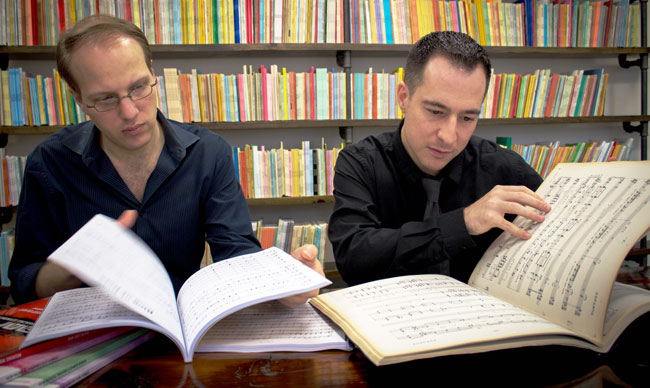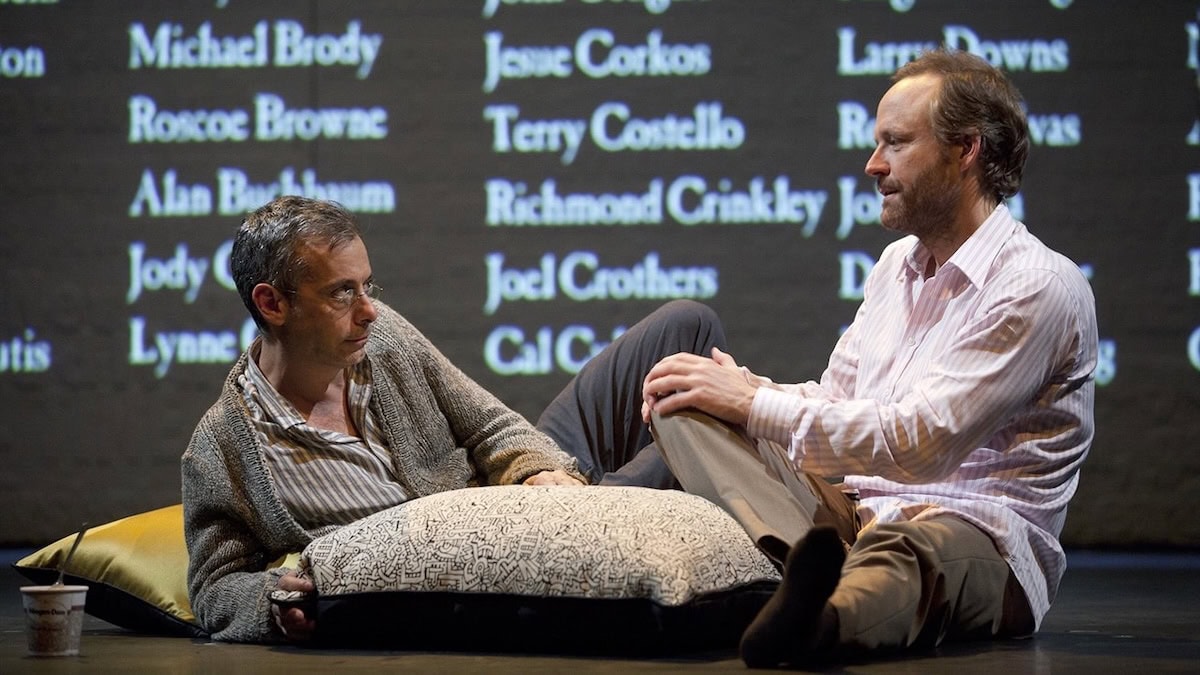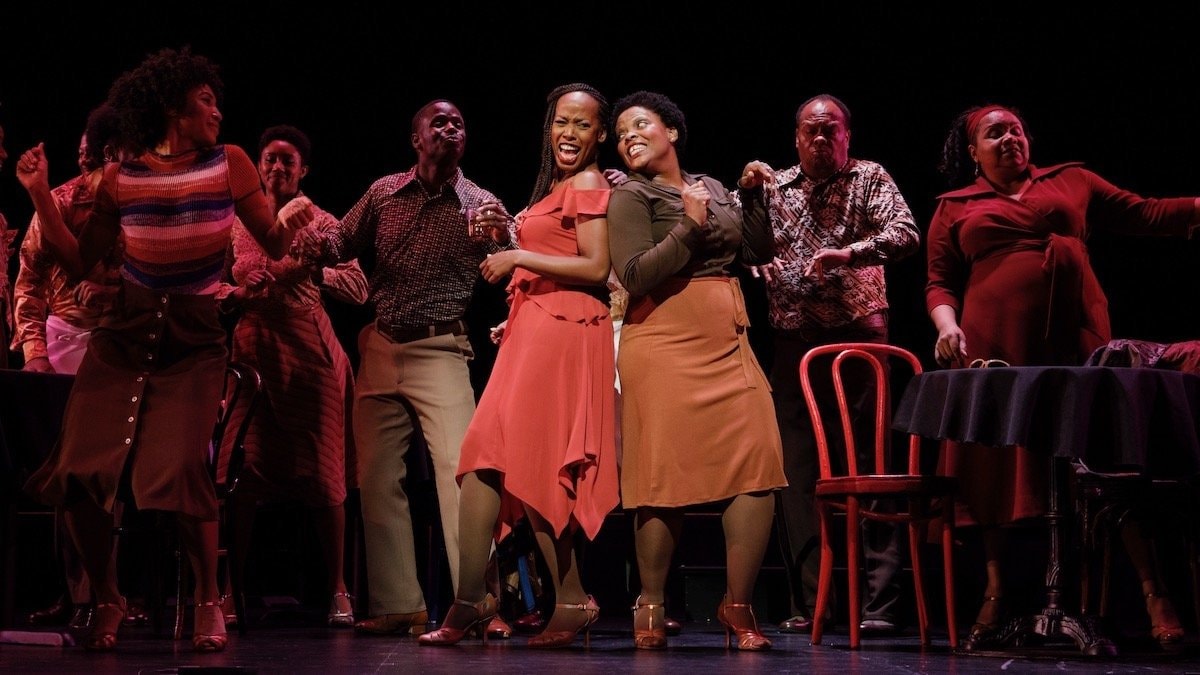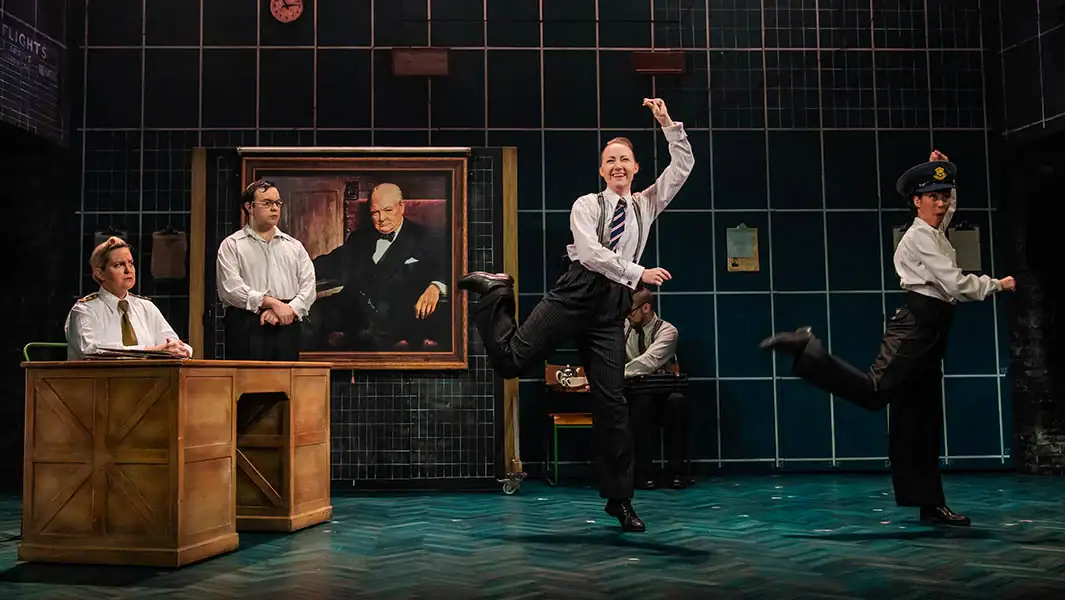
You license a musical. You receive your casts scripts, your piano conductor score and your orchestrations. But before all of that, there is a months-long (or even years-long) process to creating the score for your show – and we’re not just talking about when the composer creates the music.
Lawrence Haynes, our Musicals Marketing Associate, sat down to chat with Zachary Orts, Samuel French’s Music Supervisor, to learn more about this process, from prepping materials to re-developing scores that were once handwritten (or never written down!). Read more below.
Lawrence Haynes: Hey Zach! So, what does a Music Supervisor at Samuel French do?
Zachary Orts: My job at Samuel French consists of three main goals. First, I take our new acquisitions’ materials and move them from the realm of the rehearsal period – replete with notations, cuts and chicken-scratch – to where the materials are ready to be printed for theaters across the country. Second, I focus on the back catalog. Here at Samuel French, we have a little over 600 musicals, all in various states. I select musicals, or “target titles,” that are to be improved and go through the detailed process of updating all music materials. The third major component of my job is preparing sheet music for sale, be it vocal selections or digital downloads from our website.
Lawrence: Let’s talk about the process of preparing materials from a new acquisition. When we first acquire a musical, what is your jumping-off point?
Zach: Ideally, the best place for me to start is by seeing the show, if we are lucky enough to acquire a show while it is still running. Seeing the show is really important in order to understand how many instruments there are, whether there are onstage musicians, whether the instruments are played by the actors, or whether there is any electronica or sound effects that we have to account for.
Following this, we make contact with the composer or their agent. We will receive whatever music materials they use for rehearsal, including the full orchestration and, ideally, there will be a piano/conductor score. It will often be utilized by the music director to play in rehearsals and will contain all information needed to fit the music within the action, including cues, vamps and incidental music. However, Piano/Conductor scores don’t always exist if a show is baton-conducted like, for example, Tuck Everlasting. That show was baton-conducted on Broadway, so they had no need for a score. In this instance, we worked with the composers and the music associate on the Broadway show to create one for our licensed pack.
The next point in the process is careful revision. We will do several passes on the music to make sure that it looks and sounds great! We will go about cleaning up collisions, wrong notes, and will standardize the formatting within parts. We find this to be the most important step in the process. We don’t want any confusion for our licensees, so we work closely with the composer to line up the music with how it is performed on Broadway and try to offer as much guidance to music directors as possible.
Lawrence: How long is the process of revising music to be ready for licensees?
Zach: Depending on the acquisition, we can wait from a couple of days to years for the materials to make it to us – often it takes longer if the show is running on Broadway and we have no option to license it. After we receive the materials, our goal is to publish that script and score within four months.
Lawrence: Some musicals in our catalog are decades old. Some are even handwritten. What is the process of recopying these shows, especially when you can’t go to Broadway and watch them?
Zach: Older scores undergo very much the same process as new ones. (laughs) We pull from absolutely any resources we can. The three biggest resources with older scores are the composers, cast albums, and visits to the Lincoln Center Library with our revised scores to make sure that everything happening on the screen is happening on paper. We did this most recently for Kander and Ebb’s Kiss of the Spider Woman.
The major difference is in our recopying. It is extremely detail-oriented, and we often face technological bugs and, of course, user error. We reach out to professional productions to work with them, and will often attend the sitzprobe, computer in-hand, to make changes on the fly and ensure their rehearsals continue to run smoothly. We need to make sure that we get the transposition right for each instrument. Obviously, if we get it wrong, it’s going to sound terrible!
Lawrence: Has that ever happened?
Zach: Not yet! (knocks on wood) If it does, we always bring our iPads, make the changes, and have musicians work from the iPad while they continue to rehearse so we can reprint the parts. Time is, of course, important. For large-scale union houses, musicians are being paid union time, and we have to make sure they can rehearse within the time they have. Mistakes happen and we want to make sure that issues are corrected as quickly as possible.
We do print the materials for shows on-demand. In the cases of a recently-revised score, we will ask for the scores back and take note of all important markings that were made. Sometimes it’s wrong notes, sometimes it’s improved page-turns. After we make these changes, we re-upload it and it’s done!
Lawrence: This process seems uniquely challenging for each show. Have you experienced any challenges of note?
Zach: Each show does provide individual challenges, but I would say that Return of the Forbidden Planet was the most unique. The show was originally conceived to have actors playing the instruments and the score we had for a long time catered to this, with just the full orchestration. This no longer makes sense for how contemporary theaters perform musicals, so we had to reconceptualize how the score was laid out, as well as creating a piano conductor score where there previously wasn’t one, all while maintaining the improvisational “feel” that the original had.
Lawrence: What score are you most proud of?
Zach: The score I am most proud of is always the one that is most recent. As the music team continues to refine the process and how the music looks, it gets better every time. I am exceptionally proud of our recent transcription of Kiss of The Spider Woman. It is was spearheaded by John Atorino, our Music Associate, and he did a fantastic job. It looks so good. Obviously, having two sets of eyes greatly reduces the chance for errors! Ask me again in six months and I will be equally proud of whatever project we have just completed.
Lawrence: Speaking of upcoming projects, what’s next?
Zach: We are currently completing work on Leader of the Pack. We finished typesetting the show today and will start the evaluation and redrafting process shortly, then we will find a test theatre.
Lawrence: Let’s talk briefly about Vocal Selections. They’re new to Samuel French and obviously a different process from orchestrations.
Zach: They were new to me as well! Vocal Selections are a completely different beast. Unlike Piano/Conductor scores, Vocal selections have a unique layout. They fit all the pages, top to bottom. The visual aesthetics are incredibly important. One of the things I value highly are my visual aesthetics: I group my staves in terms of musical ideas. For example, If you have a standard 32-bar song, I want to fit two to four bars per line. I never want a double bar to occur in the middle of a line, nor a musical idea in the middle of a line. The theory beh
ind this is that when you’re playing music, you’ll play the first beat of every four bars with additional emphasis than the first beat of the other three bars – a technique of all good musicians. It also makes the music a lot easier to sight read.
Lawrence: As a professional pianist, how do you determine the difficulty of a Vocal Selection book?
Zach: Other Vocal Selection publishers often make distinct decisions to create either an easy-piano version or integrate the vocal line into the accompaniment. We made a conscious decision to not do this and, instead, adhere to the original arrangements as much as possible. This makes our Vocal Selection arrangements perfect for cabarets and auditions, and so the piano arrangement reflects what you’d hear in the show. We don’t simplify things, but they are all absolutely playable, even sight-readable. It is all part of our mission to serve the composer. I think we’ve achieved that!

The Truth Behind… The Normal Heart

Musical Revues

